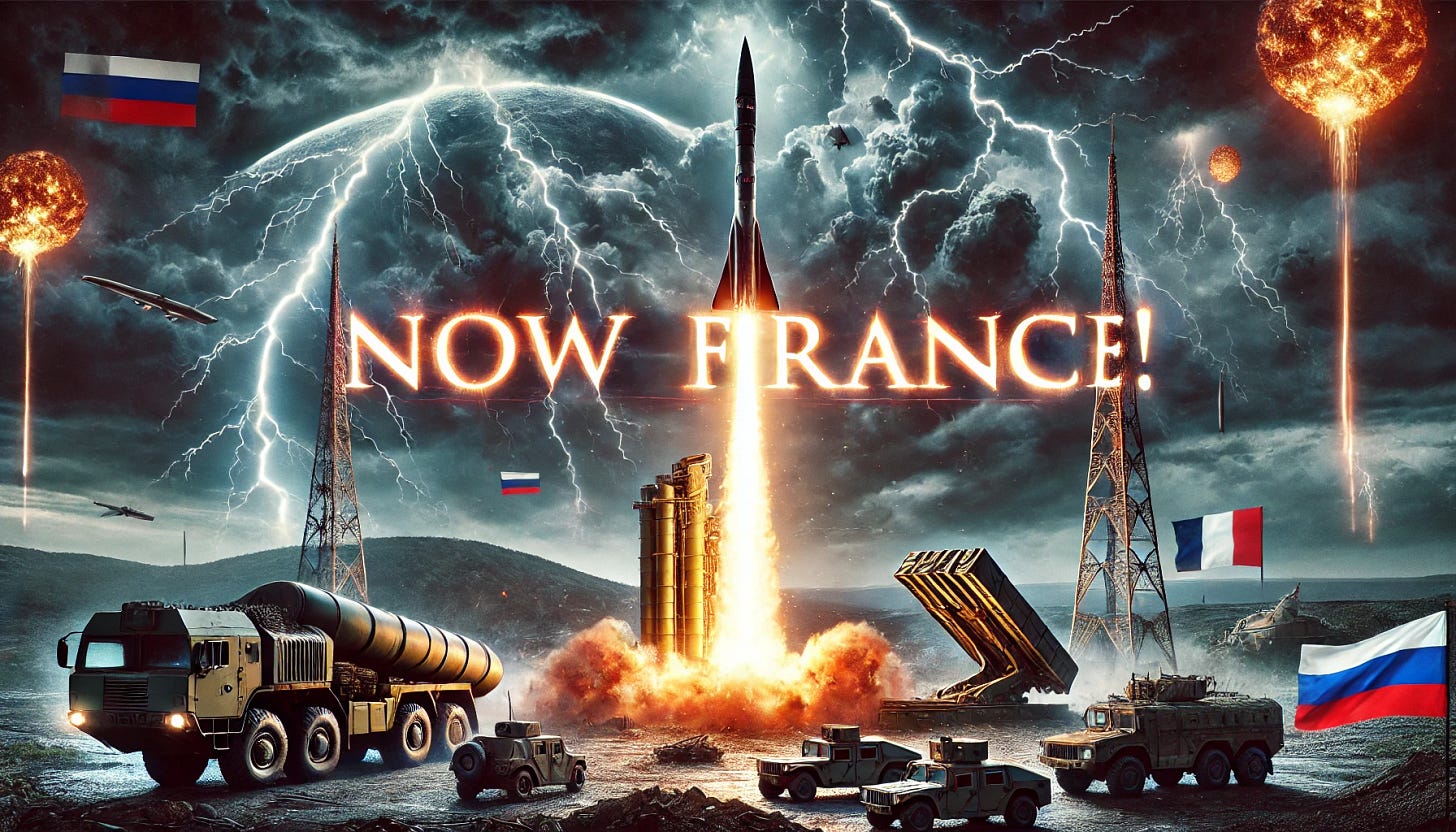Breaking News: France Follows US & UK Authorizing Long-Range Missile Strikes Deep Into Russia as Global Crisis Intensifies
France has made a controversial decision to permit the use of long-range missiles against internationally recognized Russian territory. This escalation, which many analysts describe as the closest the world has come to nuclear confrontation in modern history, has been linked to a broader Western strategy led by the Biden administration. Critics argue that this trajectory not only heightens global tensions but also diverges from the will of the American public, who remain wary of deeper military involvement.
Since 2022, France has supplied Ukraine with an undisclosed number of SCALP-EG cruise missiles, known as Storm Shadow in the UK. These advanced, air-launched missiles, with a maximum range of 550 kilometers (390 miles), have primarily been used in contested territories. However, this new development signals a significant shift, with these weapons now potentially targeting Russian positions within internationally recognized borders.
Russia’s Response: Oreshnik Missile Deployment and Warnings to NATO
Russian President Vladimir Putin responded with an unequivocal show of force, announcing the deployment of Russia’s newest ballistic missile, the "Oreshnik." This advanced weapon, aimed at a key Ukrainian defense facility, is Russia’s countermeasure to the increasing use of U.S. and British-supplied long-range missiles in the conflict.
In addition to deploying the Oreshnik missile, Putin issued a stark warning to NATO. He declared that medium-range missile strikes on NATO countries could become a reality if Western nations continue to escalate their involvement in the Ukraine conflict. This marks a chilling escalation, raising the stakes for all parties involved.
The SCALP-EG: A Game-Changer or a Dangerous Gamble?
The SCALP-EG is a precision-guided, long-range cruise missile designed to evade advanced air defenses and deliver high-impact strikes on strategic targets, such as command centers, ammunition depots, and critical infrastructure. France’s authorization for Ukraine to use these missiles against Internationally recognized Russian territory represents a clear escalation of Western support in the conflict.
While these missiles have given Ukraine a tactical edge, their use against internationally recognized Russian territory crosses a line that Russia has repeatedly warned against. Moscow has labeled such actions as provocations that could trigger proportional retaliatory strikes, potentially targeting NATO assets or infrastructure.
Biden Administration’s Role and Public Sentiment
The Biden administration has played a central role in shaping Western policy on Ukraine, providing billions of dollars in aid and advanced weaponry. However, critics argue that Washington’s aggressive stance is dragging the world closer to a catastrophic global conflict. Polling data indicates that a significant portion of the American public opposes further military escalation, highlighting a growing disconnect between government policy and public opinion.
Analysts warn that the administration’s strategy risks alienating key allies and increasing the likelihood of direct confrontation with a nuclear-armed Russia. While the stated goal is to deter Russian aggression, the unintended consequence may be the opposite: a more dangerous and unpredictable global security landscape.
Escalation and the Risk of Miscalculation
With each new escalation, the risk of a miscalculation that spirals into a broader conflict grows. Russia’s warnings of "mirror reactions" to missile strikes on its territory are not mere rhetoric but reflect a policy of proportional retaliation. The deployment of the Oreshnik missile underscores Moscow’s readiness to respond decisively to what it perceives as Western overreach.
Meanwhile, NATO faces a precarious balancing act. While it seeks to support Ukraine and deter Russia, the alliance must also weigh the risks of provoking a direct conflict with a nuclear-armed adversary. Putin’s explicit threats against NATO countries amplify the stakes, as any misstep could ignite a catastrophic confrontation.
A Pivotal Moment in Global History
US, UK and now France’s decision to authorize long-range strikes deep into Russian territory represents a turning point in the Ukraine conflict. While it signals unwavering Western support for Ukraine, it also raises the specter of a broader war that could draw in NATO and Russia directly.
The deployment of Russia’s Oreshnik missile, coupled with Putin’s warnings to NATO, highlights the escalating tit-for-tat nature of the conflict. Each side continues to push boundaries, with no clear path to de-escalation in sight.
As the situation unfolds, the world teeters on the edge of a potentially catastrophic confrontation. The decisions made in the coming weeks will likely determine whether the conflict escalates further or whether a path to diplomacy and resolution can be found. For now, the prospect of peace remains overshadowed by the specter of war on an unprecedented scale.





It looks like something but it really isn't. Russia has already encountered all these weapons and they have been using them against Russia in a "deep strike" capacity. That is another thing, they aint particularly "deep" because the weapons need to be launched close to the Russian border to "get in deep." That runs the risk of being spotted or shot down. Putin will roll with it until Trump. Then it's over but expect a terrible retribution on Ukraine.
Any destructive escalation should only be on The USA,UNITED KINGDOM,FRANCE. Maybe Germany. Let their CIVILIANS pay the Price. The other NATO NATIONS SHOULD STAY OUT OF IT. It’s funny how POLITICIANS AND MILITARY GENERALS LOVE TO SEND INNOCENT CIVILIANS TO THEIR DEATH.